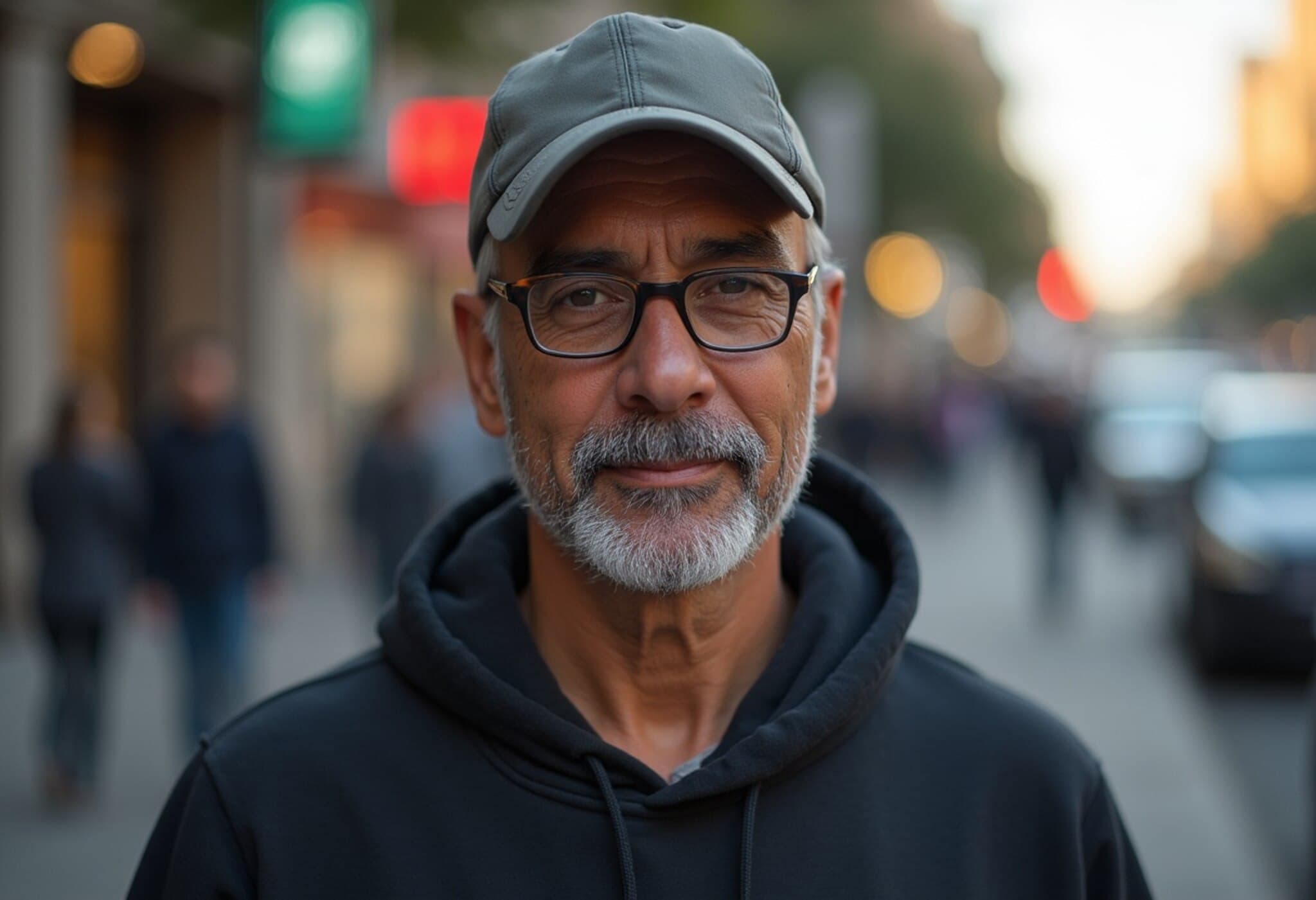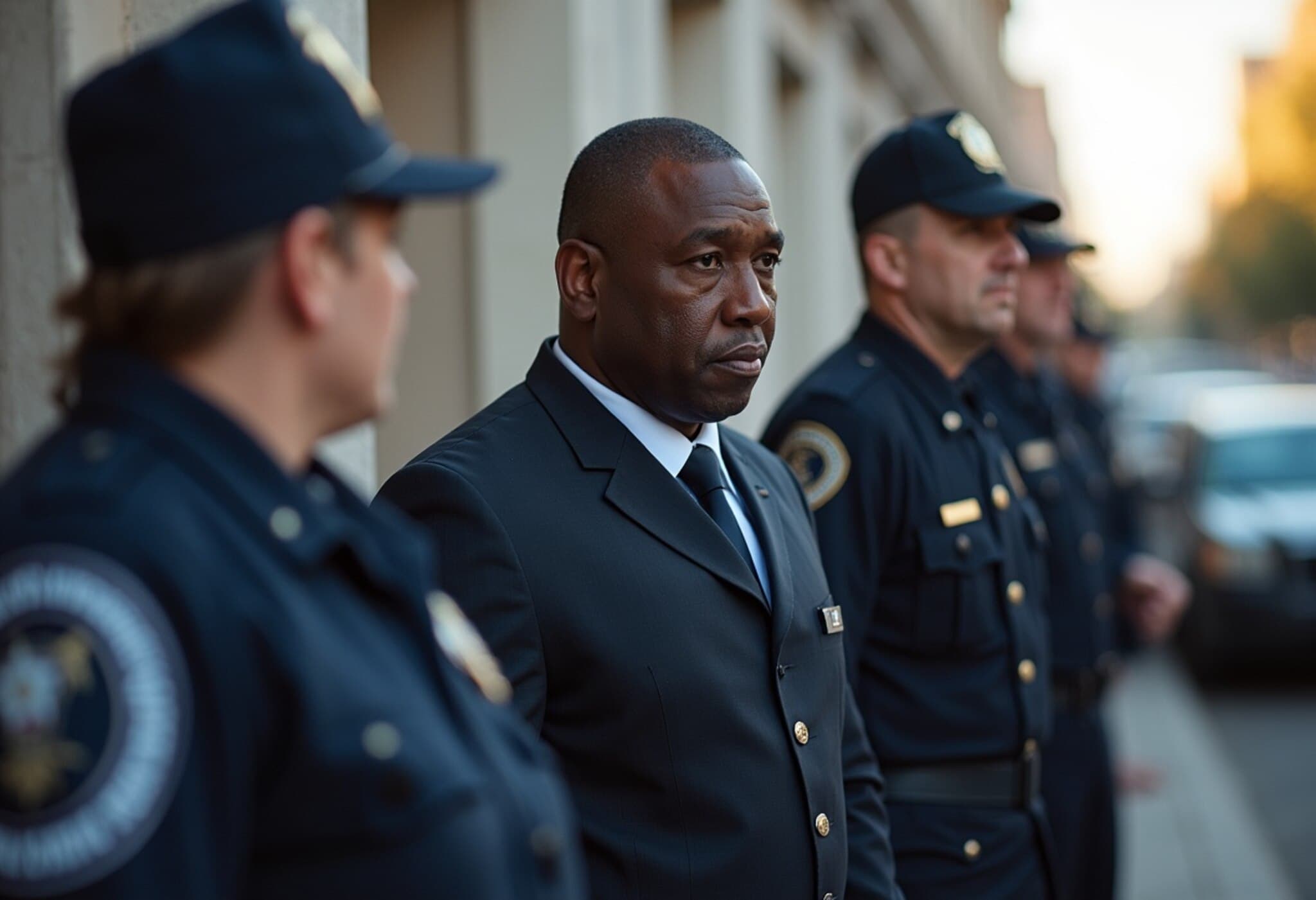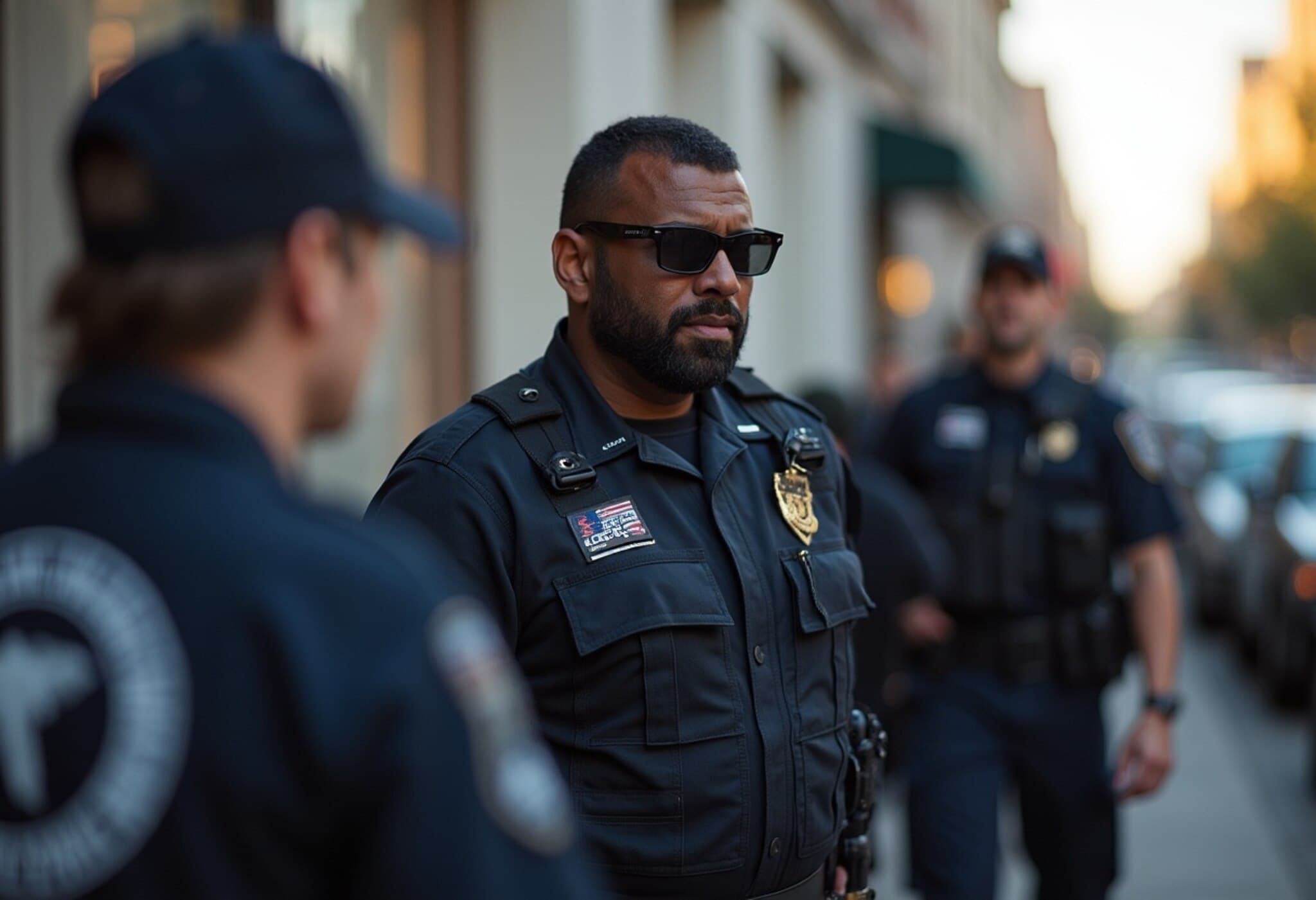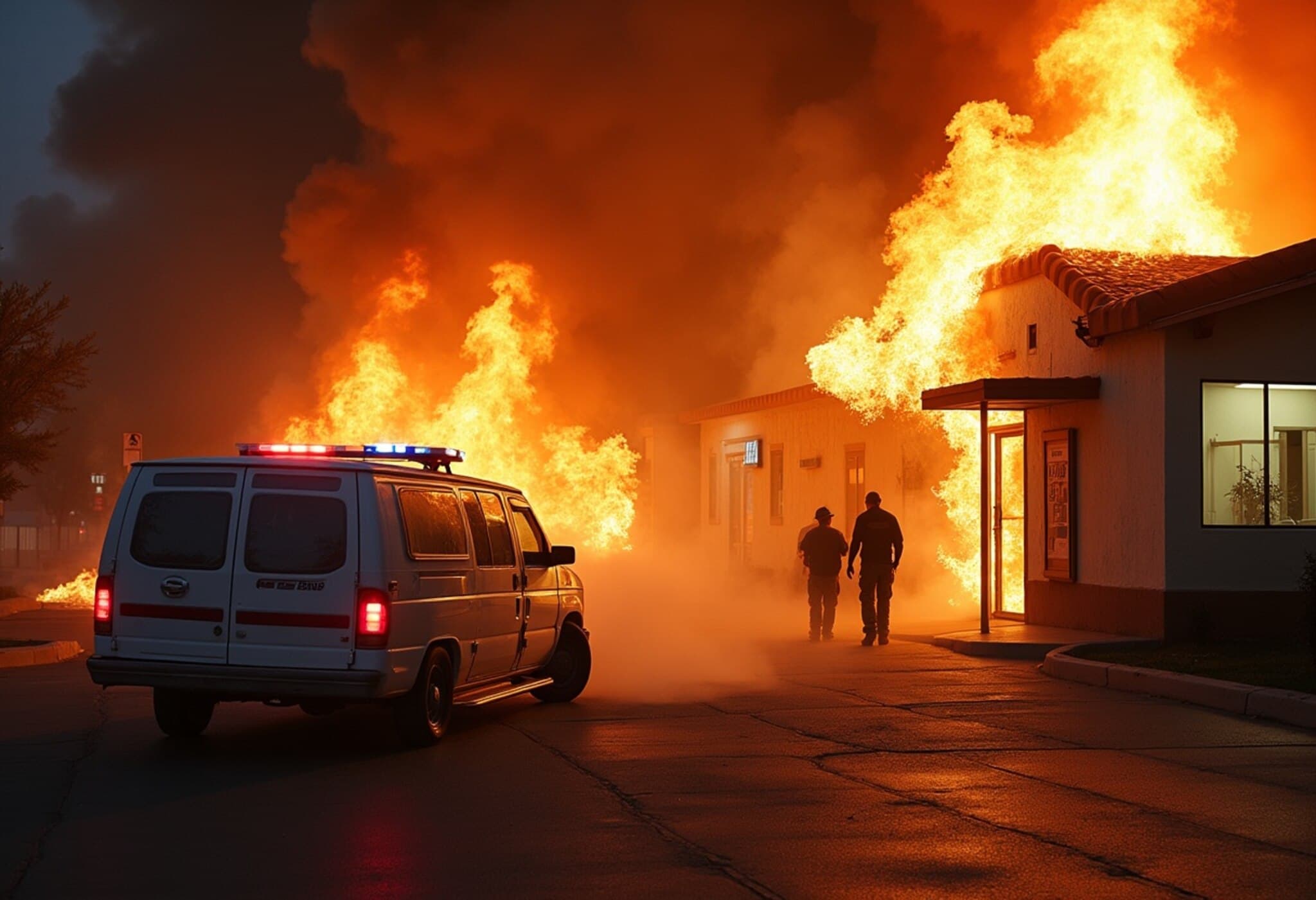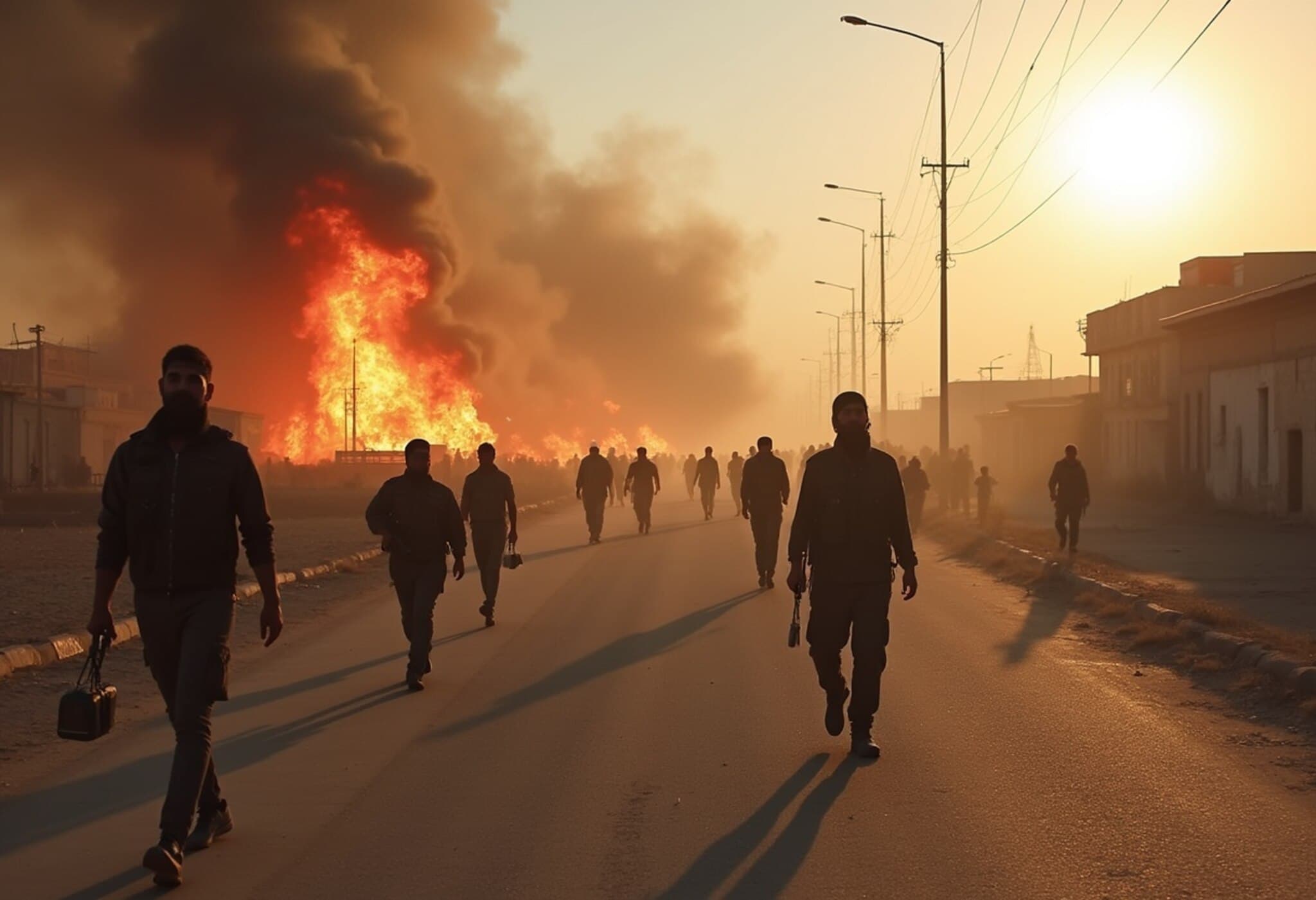Federal Officials Stand Firm Amid Controversy Over California Immigration Raids
In the wake of a tragic incident during a massive immigration enforcement operation in Southern California, officials from the Trump administration have staunchly defended their controversial immigration crackdown. The Department of Homeland Security (DHS) plans to appeal a recent federal injunction that labeled parts of their enforcement as racially discriminatory.
A Fatal Fall and Arrests at Cannabis Farms
The raids targeted two cannabis farms in Camarillo, California, resulting in 361 arrests, including numerous undocumented workers, and the exposure of 14 migrant minors allegedly at risk of labor exploitation. The operation escalated tensions when Jaime Alanis Garcia, one of the farmworkers, suffered fatal injuries after falling nearly 30 feet from a greenhouse rooftop during the raid.
According to Garcia’s family, he was placed on life support until his wife could arrive from Mexico, but he succumbed to his injuries two days later. DHS officials clarified that Garcia was not being pursued at the time of his fall, and emergency responders quickly intervened.
Protests and Clashes With Federal Agents
The large-scale immigration enforcement ignited widespread protests. Demonstrators clashed with federal agents, leading to reports of tear gas and less-lethal weapons being deployed. DHS Secretary Kristi Noem reported that agents came under violent attack, with protesters hurling bricks, rocks, and even gunfire.
On the political front, Democratic Representative Salud Carbajal — present during the events — criticized the agency’s use of force against peaceful protesters. “I witnessed agents, in full military gear, fire smoke canisters and projectiles into a crowd,” Carbajal stated. Meanwhile, Carbajal is under federal review after allegedly distributing an ICE officer’s business card to protesters, an action currently scrutinized by the Justice Department.
Defense and Criticism: A Divided Response
DHS Secretary Noem and border security advisor Tom Homan categorically rejected accusations of racial profiling. Noem described the federal injunction against the raids as "flawed" and vowed on Fox News that "We will appeal, and we will win." Homan added authority to the administration’s rationale on CNN, suggesting that while physical appearance alone cannot determine suspicion, it forms part of the "reasonable suspicion" officers can rely upon during enforcement actions.
On the opposing side, Senator Alex Padilla lamented that strict arrest quotas have created an aggressive law enforcement environment with devastating consequences. “These policies are pushing ICE to act with more cruelty, and unfortunately, it’s costing lives,” he remarked.
Meanwhile, former President Trump reaffirmed his support for the raids via a post on Truth Social, suggesting that authorities should deploy "whatever means is necessary" to uphold immigration laws — a statement that underscores continuing tensions over immigration enforcement policy.
Expert Analysis: Unpacking the Human and Policy Implications
This incident sheds light on the complex intersection of immigration enforcement, labor rights, and public safety in America’s agricultural sectors. While proponents argue that stringent raids uphold the rule of law and protect American jobs, critics emphasize the human costs — including potential racial profiling, excessive use of force, and tragic accidents like Garcia’s death.
From a policy perspective, these raids raise key questions about the enforcement priorities of federal immigration agencies and the consequences for undocumented workers, many of whom operate in essential but vulnerable industries. Moreover, the response from local communities and politicians underscores growing societal divides on immigration and law enforcement approaches in the United States.
Looking Ahead: What This Means for Immigration Enforcement
- Legal battles intensify: The DHS’s appeal of the injunction will test the judiciary’s stance on racial profiling and the limits of immigration enforcement.
- Community relations strained: Events like these highlight tensions between local populations and federal agencies, potentially undermining trust and cooperation.
- Policy reform pressures mount: The tragic outcome and public outcry may fuel debates surrounding humane and effective immigration policies that balance enforcement with workers’ rights.
Editor's Note
The clash over immigration enforcement in California is more than just a legal dispute; it reflects deep societal fissures about how the United States manages immigration and labor in sensitive industries. Jaime Alanis Garcia’s death is a somber reminder of the human cost behind policy decisions made in Washington. As the DHS moves forward with its appeal and the debate heats up, it prompts critical reflection: How can enforcement be conducted justly without endangering lives or deepening societal divisions? And what role should racial considerations play when profiling is alleged? This unfolding story demands nuanced attention, emphasizing both the rule of law and compassion.
Stay tuned for ongoing coverage and expert insights on immigration enforcement policy, labor rights, and community impact across the U.S.









